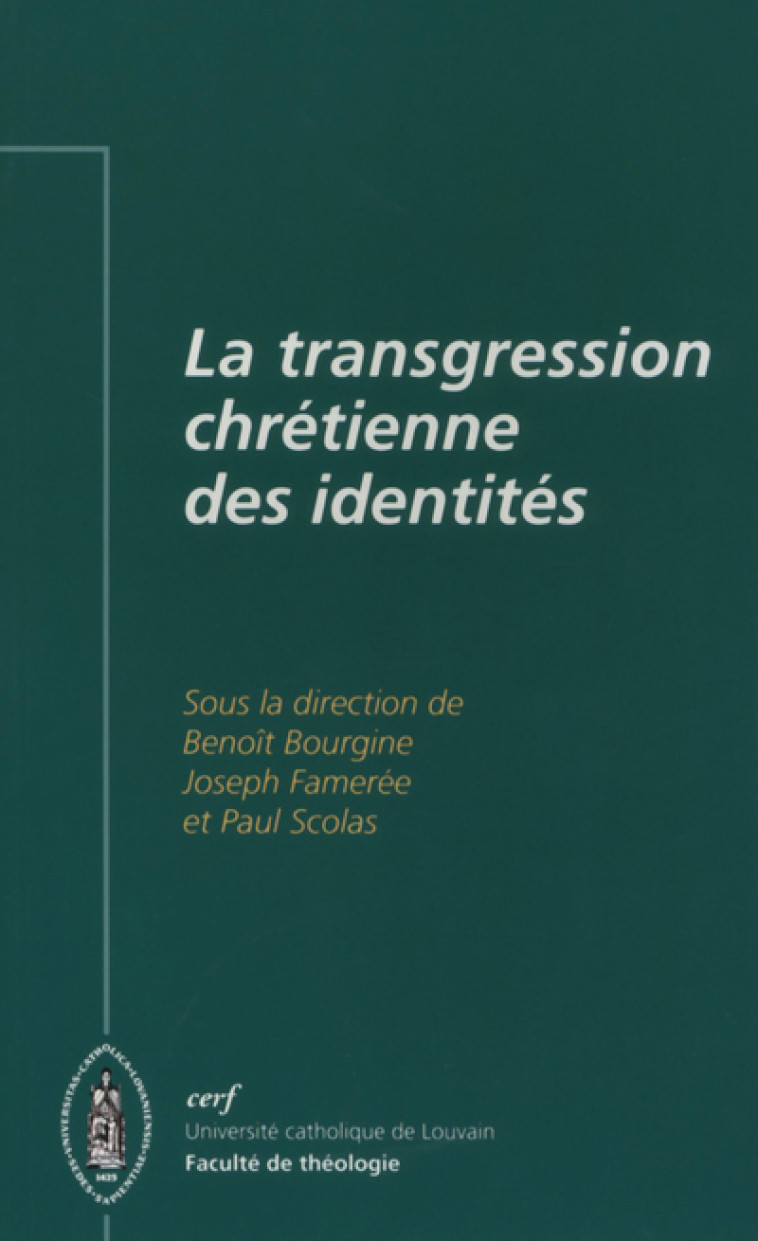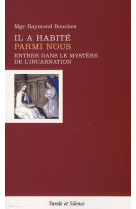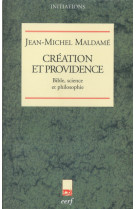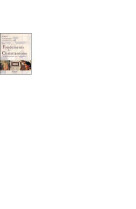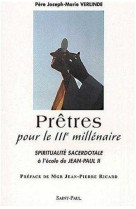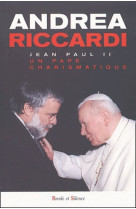La transgression chrétienne des identités
José famerée
Qui suis-je ? Qui sommes-nous ? Questions fondamentales de l'être humain à toutes les époques. Cette question de leur identité, les individus et les sociétés se la posent aujourd'hui avec d'autant plus d'inquiétude que la réponse est incertaine. Cette quête d'identité est liée à un besoin légitime d'appartenance, d'enracinement, mais celui-ci, aujourd'hui, se transforme parfois en une revendication radicalisée de particularisme communautaire, qui met en péril le vivre-ensemble en société. Comment donc empêcher les identités de se clore sur elles-mêmes ? Comment penser et vivre une identité qui se fait « en se cherchant et en s'inventant » ? Comment « chercher notre identité dans la différence » ? Ne faut-il pas transgresser les identités pour les ouvrir à l'universel ? C'est ce que fera sans hésitation Paul, le Juif, le Grec et le Romain, pour l'universel de l'amour du Christ qui l'a saisi : « il n'y a plus ni Juif, ni Grec il n'y a plus ni esclave, ni homme libre il n'y a plus l'homme et la femme car tous, vous n'êtes qu'un en Jésus Christ. » (Ga 3, 28). Cette ouverture à la pluralité des identités doit elle-même se traduire par une pluralité d'approches de la thématique. Se conjugueront donc les apports théologiques, exégétiques, éthiques, littéraires, philosophiques... Une conviction traverse l'ensemble des actes de ce Xe Colloque Gesché : il n'est pas d'identité humanisée dans l'enfermement, pas d'identité sans transgression, c'est-à-dire sans exposition à l'altérité de l'autre... et de soi-même, entre singularité et horizon de l'universel. Benoît Bourgine, Paul Scolas, Daniel Procureur, Frédéric Blondeau et Joseph Famerée ont élaboré ce symposium, en lien avec la faculté de théologie de Louvain-la-Neuve. Le lecteur y trouvera, plus vivant que jamais, l'esprit qui caractérise les Colloques Gesché depuis leur origine : une certaine manière de pratiquer la théologie dogmatique, à savoir, « identifier une question importante qui se pose à la foi chrétienne et qui est, en même temps, un enjeu anthropologique, un enjeu de culture et de société, et traiter cette question à partir d'éclairages multiples ».
--
Who am I? Who are we? These are fundamental questions that human beings have posed throughout time. Individuals and societies are asking such question of our identity today with all the more concern because the answer is uncertain. The quest for identity is linked to the legitimate need to belong, to have roots but today, it is sometimes transformed into a radical communitarian demand, which is a danger for our capacity to live together in a society. How can we prevent identity from closing in on itself? How can we think and live an identity which is created ‘by self-seeking and self-invention'? How can we ‘seek our identity in terms of difference'? Should we not rather transgress identities, open them up to the universal? That is what Paul does, without the slightest hesitation: Paul the Jew, the Greek and the Roman, for the universal love of Christ that seized him: ‘There are no more Jews, or Greeks no more slaves or free men no longer man and woman for you are all one in Jesus Christ.' (Ga 3, 28). This opening to multiple identities must be reflected in multiple approaches to the subject the barriers between theological contributions, exegetics, ethics, literature and philosophies must give way. One conviction traverses all the acts of this 10th Colloquium Gesché: there is no humanised identity in confinement, no identity without transgression, i.e. without exposing oneself to others... and to oneself between singularity and the horizon of the universal. Benoît Bourgine, Paul Scolas, Daniel Procureur, Frédéric Blondeau and Joseph Famerée organized this symposium, together with the theology department of Louvain-la-Neuve. The reader will find, livelier than ever, the spirit that has distinguished the Colloquia Gesché since their beginnings: a certain way of practicing dogmatic theology: ‘to identify an important question confronting Christian faith which is, at the same time, an anthropological issue, a challenge for culture and society and to treat that question from multiple, enlightening viewpoints'.

